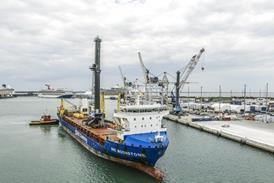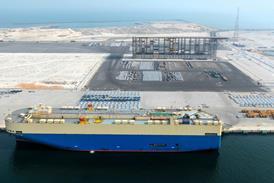South Africa has closed 35 out of its 53 land ports in a bid to combat the spread of Covid-19 in the country.
In a statement to the nation, South Africa’s President Cyril Ramaphosa said: “The world is facing a medical emergency far graver than what we have experienced in over a century… It is now clear that no country is immune from the disease or will be spared its severe impact.”
At the time of his statement on March 15, South Africa had 61 confirmed cases of Covid-19. By March 20, that figure had risen 274.
The number of cases in the country is expected to follow a similar upward trajectory that has been seen in countries all over the world. As such, South Africa has decided to take “urgent and drastic measures to manage the disease, protect the people of our country and reduce the impact of the virus on our society and on our economy,” said Ramaphosa.
Of the 53 land ports, 35 have been shut down. Two of the eight sea ports are closed for passengers and crew changes, but are still operational and open for cargo ships.
In the last few weeks, South Africa had already seen a dramatic decline in economic activity with its major trading partners. A sudden drop in international tourism and instability across all global markets is worsening the economic forecast for the country. Indeed, Ramaphosa noted that the pandemic “will also have a significant and potentially lasting impact on our economy”.
The decline in exports will be exacerbated by the measures required to contain the spread of the disease, which Ramaphosa said will have a potentially severe impact on production, the viability of businesses, job retention and job creation”.
The impact of the partial shutdown of ports will undoubtedly have an adverse effect on the movement of freight in the country. While some bigger ports remain open for business, delays are expected to increase.
A partial closure of border posts will have a similar impact on road freight – delays and subsequent increase in costs.
Hauliers entering South Africa may be screened, throwing up questions about what happens to the truck and cargo in the interim, while freight moving along the routes where border posts have been shut down need to be rerouted.
“This epidemic will pass,” concluded Ramaphosa, “but it is up to us to determine how long it will last, how damaging it will be, and how long it will take our economy and our country to recover.”

















